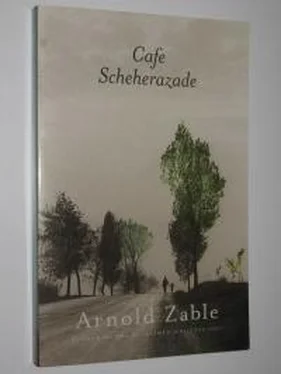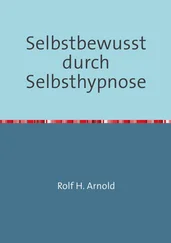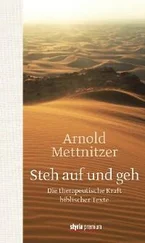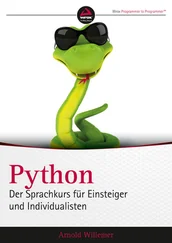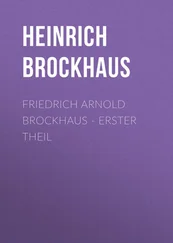Arnold Zable - Cafe Scheherazade
Здесь есть возможность читать онлайн «Arnold Zable - Cafe Scheherazade» весь текст электронной книги совершенно бесплатно (целиком полную версию без сокращений). В некоторых случаях можно слушать аудио, скачать через торрент в формате fb2 и присутствует краткое содержание. Город: Melbourne, Год выпуска: 2001, Издательство: Text Publishing Company, Жанр: Проза, на английском языке. Описание произведения, (предисловие) а так же отзывы посетителей доступны на портале библиотеки ЛибКат.
- Название:Cafe Scheherazade
- Автор:
- Издательство:Text Publishing Company
- Жанр:
- Год:2001
- Город:Melbourne
- ISBN:нет данных
- Рейтинг книги:4 / 5. Голосов: 1
-
Избранное:Добавить в избранное
- Отзывы:
-
Ваша оценка:
- 80
- 1
- 2
- 3
- 4
- 5
Cafe Scheherazade: краткое содержание, описание и аннотация
Предлагаем к чтению аннотацию, описание, краткое содержание или предисловие (зависит от того, что написал сам автор книги «Cafe Scheherazade»). Если вы не нашли необходимую информацию о книге — напишите в комментариях, мы постараемся отыскать её.
Cafe Scheherazade — читать онлайн бесплатно полную книгу (весь текст) целиком
Ниже представлен текст книги, разбитый по страницам. Система сохранения места последней прочитанной страницы, позволяет с удобством читать онлайн бесплатно книгу «Cafe Scheherazade», без необходимости каждый раз заново искать на чём Вы остановились. Поставьте закладку, и сможете в любой момент перейти на страницу, на которой закончили чтение.
Интервал:
Закладка:
"I hurled the ashtray at Stanislaw. I can see it now, as it flew towards him. I can see the exact moment when it crashed against his forehead. I can see the skin breaking open, the blood squirting over his face. I can see his astonishment, his burning eyes, as he leapt at me, clawed at me like a wounded animal. By the time Mendel came to my aid, Stanislaw had landed enough blows to send me to hospital for a month.
"When I returned I was the toast of the streets. This is how it was. The boys of Krochmalna put on a reception for me. The Polish and Jewish underworld Joined together to welcome me back.
They hired the banquet hall of the Polonia.
"`Let bygones be bygones,` they said. Stanislaw and his henchmen gave me their hand. We recalled our battles like old soldiers at a reunion. We dined on gefilte fish and caviar. We sipped coffee and liqueurs. We toasted each other with cognac. The best quality. All stolen, of course. `Do not trifle with Yossel,` my former enemies said. I was welcomed back a hero."
"A hero in underpants!" interjects Laizer Bialer as he seats himself at the table, without the merest hint of small talk, an "excuse me", or a polite aside. "That no-good bastard is telling you about Krochmalna? That scoundrel is boasting about his great deeds? Always the same story. Always Krochmalna. Always poverty.
Always Mendel and Stanislaw. We know his grandmothers' tales by heart."
Laizer's face is gaunt, his cheeks sunken, his eyes constantly on the move, absorbed in everything about him. He radiates a desperate zest for life, as if any moment lost would be a small death in itself. He dresses plainly in slacks, an open-necked shirt, a well-worn tweed jacket. As he talks his forehead furrows in concentration. His oval-shaped face alternates between wariness and unexpected warmth. He veers between a hard clipped Yiddish and English, which he speaks with the old-fashioned correctness of someone who has mastered it late in life.
"You no-good scribbler," he says, turning to me. "Yes, I know who you are. I have seen your columns, God help us. I have read your foolish stories, may my enemies be so clever. So, now you want to write about Vilna? And about Wolfke's? Where we did meet, Yossel, Zalman and I? I will tell you how it was, without Yossel's embellishments and lies."
Zalman has glided into our presence. His face is somewhat softer, reflective, as if troubled, as if trying to discern a deeper truth which still awaits him, just beyond reach. He is the most reticent of the three, and thinner, more compact, more youthfullooking, even though, like Laizer, he is almost eighty. His neatly cut hair has not turned fully grey. He is dressed in a pair of jeans, a checked shirt, and sneakers. His clothes are well fitting, yet casual and loose.
"Ah, the intellectual has finally arrived," says Laizer with a hint of sarcasm.
They are very different, our three friends, the refined Zalman, the streetwise Yossel, and the belligerent Laizer with his ironic smile. Yet the bond between them is palpable, an indelible friendship first forged in the Vilna of the Red interlude, a city full of foreboding.
"I can still see it clearly," says Laizer. "Over the door there was a sign, written in Yiddish: Wolfke's. Outside, on Zydowska Street, would gather porters and peddlers, wagon drivers and chauffeurs. While their horses stood by water-troughs and drank, their masters filed into the saloon for a whisky, a snack.
"The saloon was the outer room. The floor was covered in sawdust.
A bartender poured mugs of beer, a brandy, any concoction one desired. Sometimes a fight would break out; and just as quickly it would be broken up. There was always something happening in the bar.
"Those with more money hurried through to the restaurant. The tables were crowded with families rich enough to eat out. It was like Scheherazade will be in an hour or so, when people come for their Sunday lunch. They stuffed themselves, fought over politics, traded jokes, boasted about their business deals, spoilt their children with sweets, and gossiped until their throats creaked," concludes Laizer, with a triumphant smile.
"In Wolfke's you could get the best Sabbath cholent in Vilna," enthuses Yossel. "Such a mouth-watering stew! So thick with potatoes and chunks of meat. And, for a snack, you could order a beautiful chopped liver. It was a mekhaiye. A pure delight. With beaten onion and egg, floating in chicken fat."
"So, you no-good bastard, you Krochmalna Street know-all. Any mention of food and your mouth drools," retorts Laizer. "But, I must admit, on this subject you do know what you are talking about. And, if you wanted to fill your belly with delicacies, you could go to the banquet hall, where there did gather bohemians and dandies with their hangers-on. And no-good intellectuals like our friend Zalman, forever boasting that they knew how to change the world. Here we did come after an evening at the cinema for a vodka and an argument."
"And for the beautiful girls," interjects Yossel. "In Wolfke's we could dance, to the radio, a quick tango. Ah. What a mekhaiye!"
"_Nu, not only are you a hero in underpants, but a Casanova!"
says Laizer. "Yes, we did dance on the bare wooden floors. And we ate finely cut salami and goose feet. We snacked on gefilte fish, peppered, Vilna-style. We feasted on pickled herring and boiled beef. We partied until daybreak and stumbled out bloated into Zydowska Street."
As Laizer holds forth, Zalman is humming. His eyes are fixed on some distant point. His humming becomes discernible, a melody, a Yiddish song. Laizer and Yossel fall silent. Around them the world is beginning to burn. And in the distance can be heard the trembling of forests, the cries of marauders, the tread of a sinister enemy approaching the city gates:
"I searched for you all over town, Except for the one cellar where you waited.
That is my fate, oh my fate.
I searched for you throughout the world
With your image always dancing before me, But nowhere were you to be found.
So I sat down, heavy-hearted, on a stone, Yet your image still hovered before me
Always in the distance, just beyond reach.
To search and never find is a terrible burden;
To search without end is a terrible fate."
As Zalman sings I glance at the tables: on each table a rectangular beige mat, on each mat a glass ashtray, and containers of sugar, pepper and salt. A ray of late-morning sun lights up the objects, and for a brief moment they seem like antidotes to ageing men, burdened with memories which will never be erased.
"September 1939 was the month that changed our fate," says Zalman. "Blue skies were muddied by planes that spat misery into our lives. In Warsaw, I saw buildings split and craters opening before my eyes. I decided to flee the city I had lived in all my life. I hugged my loved ones and took to the roads as though pursued by rabid dogs. I leapt under bushes as though they could protect us from bombs. I ran through forests crackling with flames. I saw the bark peeling from trees ablaze. And still I ran.
"I fled past overturned wagons, as their owners scattered for their lives. I ran in a frenzy past the injured and dead. I leapt over wounded horses shrieking in agony. I slipped in and out of barns. I hid in sewers and drains. I jumped on and off moving trains. I waded across rivers and streams. I saw town lights in the distance, and made my way through the Vilna gates. And I found temporary respite in a city bursting with refugees.
"It would take some time before I realised that it would be the first of many cities which seemed, from a distance, to be the haven I craved. It would take years to accept I would never see my loved ones again. It would take decades before I fully understood that to search without end is a terrible fate."
Читать дальшеИнтервал:
Закладка:
Похожие книги на «Cafe Scheherazade»
Представляем Вашему вниманию похожие книги на «Cafe Scheherazade» списком для выбора. Мы отобрали схожую по названию и смыслу литературу в надежде предоставить читателям больше вариантов отыскать новые, интересные, ещё непрочитанные произведения.
Обсуждение, отзывы о книге «Cafe Scheherazade» и просто собственные мнения читателей. Оставьте ваши комментарии, напишите, что Вы думаете о произведении, его смысле или главных героях. Укажите что конкретно понравилось, а что нет, и почему Вы так считаете.
